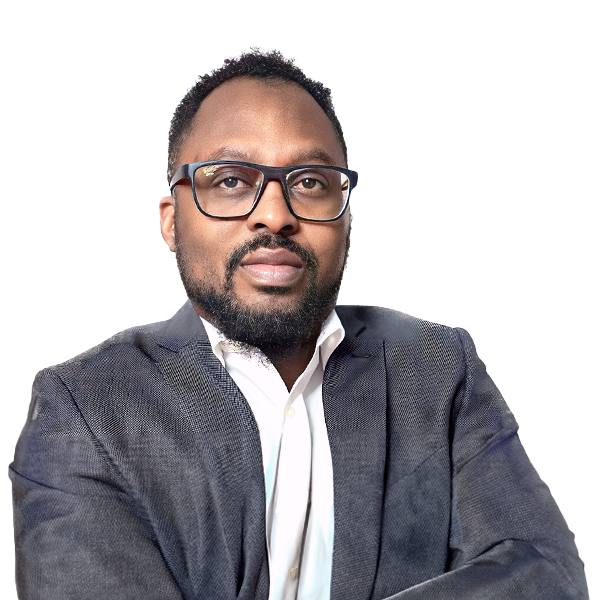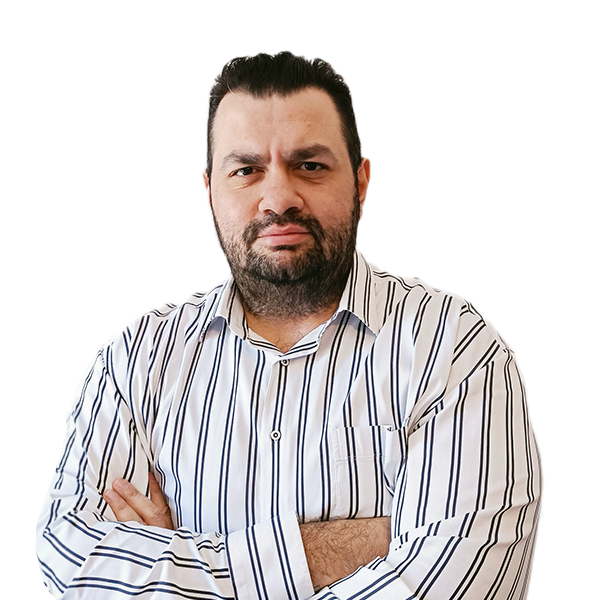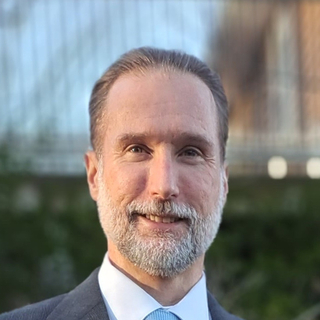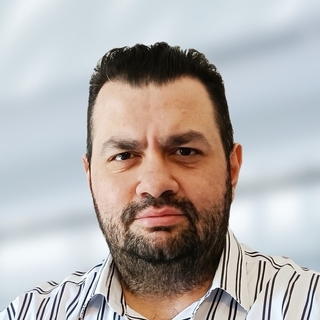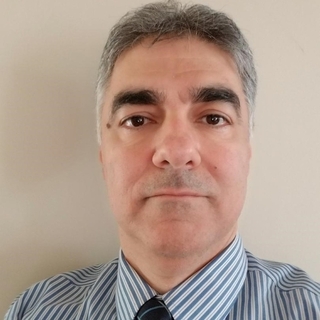
Hire Ethical Hackers
Hire the Top 3% of Freelance Ethical Hackers
Hire certified ethical hackers and white hat hackers, on demand. From risk analysis and vulnerability assessments to penetration testing and simulated attacks, Toptal’s security experts help you develop and implement effective and scalable cybersecurity defenses.
No-Risk Trial, Pay Only If Satisfied.
Hire Freelance Ethical Hackers
Anurag Yadav
Anurag is an experienced security professional with a strong background in incident handling and threat hunting based on different attack frameworks. He has expertise in Active Directory and cloud security (Azure), utilizing offensive security tools such as Bloodhound to identify and mitigate threats. He's played a key role in the development and deployment of SOC infrastructure. He's delivered training to different tiers of the SOC team on security best practices and the cyber threat landscape.
Show MoreNicaury Francisco Ramirez
Nicaury is a security engineer with 7+ years of experience in information security, cybersecurity, and systems administration. She has worked in fast-paced, remote environments for a couple of years, developing excellent communication and leadership skills. Nicaury is a certified professional with proven problem-solving and analytical skills, a fast learning curve, and the ability to adapt to any team.
Show MoreIke Anyanwu
Ike is a senior cloud security engineer with 12 years of experience and a solid knowledge of the National Institute of Standards and Technology (NIST) and International Organization for Standardization (ISO) publications, cybersecurity, cloud, and DevSecOps tools. He's deployed multiple security tools to monitor and mitigate attacks on infrastructure. Ike is proficient in infrastructure as code, managing a CI/CD pipeline, and protecting applications, websites, cloud networks, and infrastructure.
Show MoreJoseph Rach
Joseph is a cybersecurity professional who strives to be well-rounded while maintaining specialties in technical cybersecurity areas where he provides the best return on investment. As a master of many cybersecurity domains and fully qualified for all categories and levels of the IA workforce under the Department of Defense (DoD) 8140 and 8570, he advocates team-based approaches and promotes knowledge-transferable, shared, and open-source-based methodologies whenever feasible.
Show MoreGökay Pekşen
Gökay is a senior manager and principal advisor specializing in cyber security, information security, audit, and standards and regulations. He is highly skilled in enterprise security architecture and an expert in delivering sustainable protection and enhancing reputation and digital existence while enabling risk mitigation to prevent financial loss. Gökay has been working with different technologies, programming languages, and frameworks and is willing to embrace new and challenging projects.
Show MoreGaya Dissanayake
Gaya is a cybersecurity expert with a passion for uncovering vulnerabilities and building robust defenses to close them. A seasoned competitor in global capture-the-flag (CTF) challenges, she brings deep expertise in vulnerability management, cloud security, incident response, security awareness, and risk management across frameworks such as PCI DSS, ISO 27001, and CMMC. Gaya is proficient with leading cybersecurity tools, including Qualys, Rapid7, Nessus, Splunk, and the Kali Linux toolkit.
Show MoreRandall Chains
Randall is a cybersecurity professional with nearly a decade of security operations experience with federal and state governments. He has worked for several commercial clients with great success. Randall previously worked in a network operations capacity for multiple international telecoms.
Show MoreCarlos Muñoz
Carlos is a data engineer and analyst with nine years of experience working mainly with the Microsoft technology stack and has expertise with SQL Server, SSIS/ADF, advanced T-SQL, and the Azure platform. He has designed, developed, and maintained numerous custom data solutions from infrastructure to final reporting for Fortune 500 companies in the IT, finance, and sales industries. Carlos focuses on understanding a client's data and bringing business value with his solutions on every project.
Show MoreGunaseelan Gopal
Seelan is an IT professional with almost two decades of experience. He is well-versed in multiple security technologies, automation, infrastructure support, operations handling, and progressive management. His passion for new technologies and ability to learn and adapt quickly make Seelan a results-oriented, hands-on professional who always strives to make the most of his projects.
Show MoreElias Diab
Elias is a highly dedicated business, technical, and strategic information security, cybersecurity, and risk management officer, executive (CISO/vCISO), consultant, advisor, expert, and specialist.With over 25 years of worldwide experience, he specializes in building, managing, and maintaining information security and cybersecurity programs designed to protect your organization's systems and assets from internal and external threats and help organizations meet regulatory compliance requirements.
Show MoreAdele Farhadian
Adele Farhadian is an information security architect with over 16 years of experience planning and implementing security systems. She has several certifications: CISSP, CCSP, GWAPT, SABSA Chartered Architect, CISM, CEH, and ISO 27001 Lead Auditor. Launching her own IT security consultancy in 2015, InfoSec Assured, Adele uses her security architecture skills to perform security and privacy gap assessments, vulnerability assessments, security strategies, and security posture designs.
Show MoreDiscover More Ethical Hackers in the Toptal Network
Start HiringA Hiring Guide
Guide to Hiring a Great Ethical Hacker
Certified ethical hackers assess and fortify the security of critical business systems by identifying and resolving vulnerabilities before attackers can exploit them. They test defenses across networks, applications, and cloud environments, offering clear guidance for remediation. Their work bridges cybersecurity, infrastructure, and software engineering, helping teams keep data and systems secure and compliant.
Read Hiring Guide... allows corporations to quickly assemble teams that have the right skills for specific projects.

Despite accelerating demand for coders, Toptal prides itself on almost Ivy League-level vetting.









How to Hire Ethical Hackers Through Toptal
Talk to One of Our Client Advisors
Work With Hand-selected Talent
The Right Fit, Guaranteed
EXCEPTIONAL TALENT
How We Source the Top 3% of Ethical Hackers
Our name “Toptal” comes from Top Talent—meaning we constantly strive to find and work with the best from around the world. Our rigorous screening process identifies experts in their domains who have passion and drive.
Of the thousands of applications Toptal sees each month, typically fewer than 3% are accepted.
Capabilities of Certified Ethical Hackers
Safeguard your digital systems by simulating real-world attacks and proactively identifying vulnerabilities. Our certified ethical hackers uncover weaknesses through advanced penetration testing, threat modeling, and security assessments in order to implement cutting-edge defenses that protect your valuable assets and maintain your competitive edge.
Vulnerability Assessment
Penetration Testing
Security Audits
Social Engineering Testing
Web Application Security Testing
Network Security Testing
Wireless Network Security Testing
Incident Response Simulations
Developing Security Awareness Programs
Reporting and Documentation
FAQs
How quickly can you hire with Toptal?
Typically, you can hire ethical hackers with Toptal in about 48 hours. For larger teams of talent or Managed Delivery, timelines may vary. Our talent matchers are highly skilled in the same fields they’re matching in—they’re not recruiters or HR reps. They’ll work with you to understand your goals, technical needs, and team dynamics, and match you with ideal candidates from our vetted global talent network.
Once you select your ethical hacker, you’ll have a no-risk trial period to ensure they’re the perfect fit. Our matching process has a 98% trial-to-hire rate, so you can rest assured that you’re getting the best fit every time.
How do I hire ethical hackers?
To hire the right ethical hacker, it’s important to evaluate a candidate’s experience, technical skills, and communication skills. You’ll also want to consider the fit with your particular industry, company, and project. Toptal’s rigorous screening process ensures that every member of our network has excellent experience and skills, and our team will match you with the perfect ethical hackers for your project.
How are Toptal ethical hackers different?
At Toptal, we thoroughly screen our ethical hackers to ensure we only match you with the highest caliber of talent. Of the more than 200,000 people who apply to join the Toptal network each year, fewer than 3% make the cut.
In addition to screening for industry-leading expertise, we also assess candidates’ language and interpersonal skills to ensure that you have a smooth working relationship.
When you hire ethical hackers with Toptal, you’ll always work with world-class, custom-matched ethical hackers ready to help you achieve your goals.
Can you hire ethical hackers on an hourly basis or for project-based tasks?
You can hire ethical hackers on an hourly, part-time, or full-time basis. Toptal can also manage the entire project from end-to-end with our Managed Delivery offering. Whether you hire a ethical hacker for a full- or part-time position, you’ll have the control and flexibility to scale your team up or down as your needs evolve. Our ethical hackers can fully integrate into your existing team for a seamless working experience.
What is the no-risk trial period for Toptal ethical hackers?
We make sure that each engagement between you and your ethical hacker begins with a trial period of up to two weeks. This means that you have time to confirm the engagement will be successful. If you’re completely satisfied with the results, we’ll bill you for the time and continue the engagement for as long as you’d like. If you’re not completely satisfied, you won’t be billed. From there, we can either part ways, or we can provide you with another ethical hacker who may be a better fit and with whom we will begin a second, no-risk trial.
How to Hire Certified Ethical Hackers
The Demand for Certified Ethical Hackers Continues to Rise
Cyberattacks are becoming increasingly frequent and sophisticated, placing immense pressure on organizations to protect their networks, applications, and sensitive data. While traditional IT security teams can manage configurations and patch systems, truly defending against modern cyber threats requires businesses to think like attackers.
Certified ethical hackers (CEHs) fill this gap. They use the same tools and methods as malicious hackers—but within a structured, legal framework—to uncover weaknesses before criminals do. These certified professionals are trained to conduct penetration tests, vulnerability assessments, and exploit simulations across infrastructure, application, and cloud environments.
As high-profile breaches continue to dominate headlines, more companies are investing in proactive defense strategies. According to the US Bureau of Labor Statistics, demand for information security analysts, including certified ethical hackers, is projected to grow 29% by 2034, nearly ten times faster than the 3% average across all professions. Meanwhile, industry forecasts estimate the ethical hacking certification market could reach $5.75 billion by 2033.
While automated scanners and monitoring tools can catch basic flaws, uncovering complex security vulnerabilities requires hands-on expertise. This guide outlines the key qualities that distinguish top certified ethical hackers and explains how to navigate the hiring process to select the right professional who can help your organization prevent data breaches, service disruptions, and reputational damage.
What Attributes Distinguish Quality Certified Ethical Hackers from Others?
The best ethical hackers understand how real attackers think and exploit weaknesses, and they use that mindset to strengthen defenses. Certified ethical hackers blend rigorous white hat methodologies with in-depth technical expertise. They can analyze source code, test endpoints, reverse-engineer malware, and simulate phishing and social engineering attacks. They understand how application design, network topology, and user behavior intersect to create risk.
Seasoned ethical hackers must also be able to explain security risks in plain language to stakeholders, helping decision-makers prioritize fixes and implement sustainable security improvements. Their work strengthens collaboration between IT, development, and compliance teams, ensuring security threats are addressed as a shared responsibility across the organization.
Importantly, certified ethical hackers are trained in industry-recognized frameworks such as the OWASP Web Security Testing Guide and Penetration Testing Execution Standard (PTES), which provide a consistent, structured approach to testing and ensure ethical rigor. The EC-Council’s CEH credential is widely recognized for establishing a strong foundation for ethical hackers. Additionally, top professionals may pursue further certifications, such as the Offensive Security Certified Professional (OSCP), CompTIA Security+, or GIAC certifications (e.g., GPEN or GCIH). When evaluating candidates, consider how their certifications align with your specific needs.
Complementary Technology Skills for Certified Ethical Hackers
While CEH certification provides a strong foundation, standout ethical hackers bring broader security and infrastructure expertise that allows them to test, defend, and remediate more effectively.
Operating Systems and Networking: Deep familiarity with Linux, Windows, and macOS environments, combined with a strong grasp of TCP/IP, DNS, and routing principles, enables thorough mapping and complex network assessment.
Penetration Testing Tools: Mastery of Nmap, Metasploit, Burp Suite, Wireshark, and Aircrack-ng allows ethical hackers—sometimes known as penetration testers—to use each tool strategically during reconnaissance, exploitation, and reporting phases to simulate realistic attack scenarios.
Scripting and Automation: Certified ethical hackers should be proficient in Python, Bash, or PowerShell to automate repetitive reconnaissance tasks, exploit testing, and generate detailed reports that streamline security assessments.
Cloud Security: Hands-on experience with AWS, Azure, and Google Cloud equips ethical hackers to identify misconfigurations, IAM vulnerabilities, exposed storage, and privilege escalation opportunities.
Web and Application Testing: Expertise in assessing applications for OWASP Top 10 vulnerabilities—including SQL injection, cross-site scripting (XSS), insecure API endpoints, and broken authentication—supports comprehensive application security coverage.
Social Engineering and Physical Security: The ability to evaluate human and physical entry points through phishing campaigns, social engineering exercises, and testing of badge or keycard access helps reveal nontechnical vulnerabilities.
Incident Response and Forensics: Understanding how to collect, preserve, and analyze digital evidence after a breach, while also documenting findings, enables ethical hackers to support remediation, compliance, and legal investigations.
Compliance Awareness: Familiarity with frameworks such as ISO 27001, PCI DSS, HIPAA, and GDPR ensures security testing aligns with organizational policies and regulatory standards.
How Can You Identify the Ideal Certified Ethical Hacker for Your Project?
Hiring a certified ethical hacker is not a one-size-fits-all process. The right professional for your organization will depend on your technical environment and the scope of your security goals. While certifications establish a baseline, truly effective CEHs possess a combination of hands-on experience, effective communication skills, and a strong commitment to ethical rigor.
Define Experience Requirements for the Project
Before starting the hiring process, it’s important to clearly define your security objectives. Are you looking for penetration testing across networks, applications, or cloud infrastructure? A red team engagement to simulate advanced persistent threats (APTs) and test your organization’s detection and response capabilities? Or a targeted vulnerability assessment to satisfy compliance requirements or internal risk audits?
For smaller, well-scoped assessments, such as testing a single application or validating basic network configurations, a mid-level certified ethical hacker with strong tool-based experience may be sufficient. However, for enterprise-scale environments or regulated industries, prioritize senior ethical hackers with a proven track record in large-scale assessments, incident response, or threat modeling. These professionals are better equipped to navigate complex infrastructure, communicate risk at the executive level, and operate effectively within legal and compliance constraints.
Balance Technical Skill, Communication, and Integrity
Ethical hacking demands trust. Top candidates combine deep technical skill with strong ethical standards and clear communication. They not only know how to exploit vulnerabilities but also understand how to do so responsibly and constructively. They report findings with accuracy and urgency, honor defined scope boundaries, and provide practical, prioritized remediation guidance that teams can act on.
Because testing often involves access to sensitive information and systems, ensure the ethical hacker demonstrates professionalism, transparency, and familiarity with legal and contractual obligations such as nondisclosure agreements (NDAs).
Additionally, look for candidates who can effectively communicate with both technical teams and business stakeholders to ensure that security recommendations are understood and implemented throughout the organization.
How to Write a Certified Ethical Hacker Job Description
A strong job description will help attract certified ethical hackers who combine technical excellence with ethical rigor. Avoid broad “cybersecurity expert” language, and instead outline specific testing goals and system types. Begin with a brief overview of your organization and the systems or data you need to protect. Are you testing web applications, internal networks, or cloud infrastructure? Candidates should quickly understand the environment and risk profile.
Be explicit about the tools, frameworks, and environments involved. Specify whether you require penetration testing in AWS or Azure, web application testing using Burp Suite and OWASP methodologies, or simulated social engineering campaigns. Describe how the ethical hacker fits into your security team. Will they collaborate with internal engineers, lead vulnerability assessments, or support incident response efforts?
Finally, define success. Is it identifying and mitigating high-severity vulnerabilities? Achieving compliance certification? Reducing risk exposure? Clear expectations help attract hackers who are capable of delivering measurable results.
What Are the Most Important Certified Ethical Hacker Interview Questions?
When interviewing certified ethical hackers, you’ll want to assess how they approach real-world scenarios, communicate findings, and operate within legal and ethical boundaries. The following questions are designed to assess technical depth and strategic judgment, ensuring candidates can responsibly test and secure your systems.
Can you describe a penetration test you conducted and how you prioritized vulnerabilities?
Strong candidates will outline their end-to-end testing process—reconnaissance, scanning, exploitation, privilege escalation, and reporting—and describe how they validated findings to minimize false positives. They should explain how they balanced severity, likelihood, and potential business impact when ranking vulnerabilities, and how they collaborated with engineers or IT teams to ensure remediation was both effective and minimally disruptive.
How do you ensure your testing stays within legal and ethical boundaries?
Certified ethical hackers must operate with precision and exacting discipline. Look for candidates who demonstrate a clear understanding of scoping, authorization, and documentation protocols. They should describe obtaining written permission, defining targets, and maintaining secure logs of activities. Strong responses mention compliance with frameworks like ISO 27001 or NIST 800-115, adherence to NDAs, and formal escalation procedures for critical or out-of-scope findings to prevent legal exposure and reputational risk.
What tools and frameworks do you rely on most during assessments?
This question helps gauge both experience and adaptability. Expect detailed answers referencing Nmap, Burp Suite, Metasploit, Wireshark, and OWASP ZAP—along with explanations of how each tool supports different testing phases. Exceptional candidates will go further, discussing how they customize scripts and select, chain, or sequence tools based on the target environment. They may also mention integrating automated scans with manual validation to ensure accuracy and completeness.
How do you handle cloud security testing?
Experienced ethical hackers will describe scenarios involving environments such as AWS, Azure, or Google Cloud. These examples should showcase how they identified exposed assets, tested IAM configurations, reviewed S3 bucket and storage permissions, and simulated privilege escalation scenarios. Strong answers also mention reviewing cloud logs, assessing serverless or containerized workloads, and coordinating responsibly with cloud providers under shared responsibility models. This demonstrates awareness of both technical detail and operational boundaries.
How do you communicate complex security findings to nontechnical stakeholders?
Clear communication is as critical for ethical hackers as their technical skills. Look for candidates who explain how they translate raw vulnerability data into concise, actionable insights. They might describe structuring reports by risk level, providing business context for each issue, and prioritizing remediation efforts using frameworks like CVSS or DREAD. The best ethical hackers can collaborate with compliance teams, developers, and executives to ensure that security enhancements are recognized and effectively applied.
Why Do Companies Hire Certified Ethical Hackers?
Organizations hire certified ethical hackers to stay ahead of cybercriminals by proactively identifying vulnerabilities before they are exploited. These professionals simulate real-world attacks to uncover flaws in software, networks, and user behavior. Skilled ethical hackers help organizations strengthen their security posture, meet compliance obligations, and train internal teams to recognize and prevent breaches. Their work directly reduces the risk of financial losses and reputational damage.
Just as important, certified ethical hackers help future-proof cybersecurity investments. They ensure systems evolve alongside emerging threats by integrating regular testing into broader security operations. In an era where digital trust defines business continuity, certified ethical hackers provide organizations with the confidence that their defenses are thoroughly tested, validated, and continually improved.
Top Ethical Hackers Are in High Demand.

